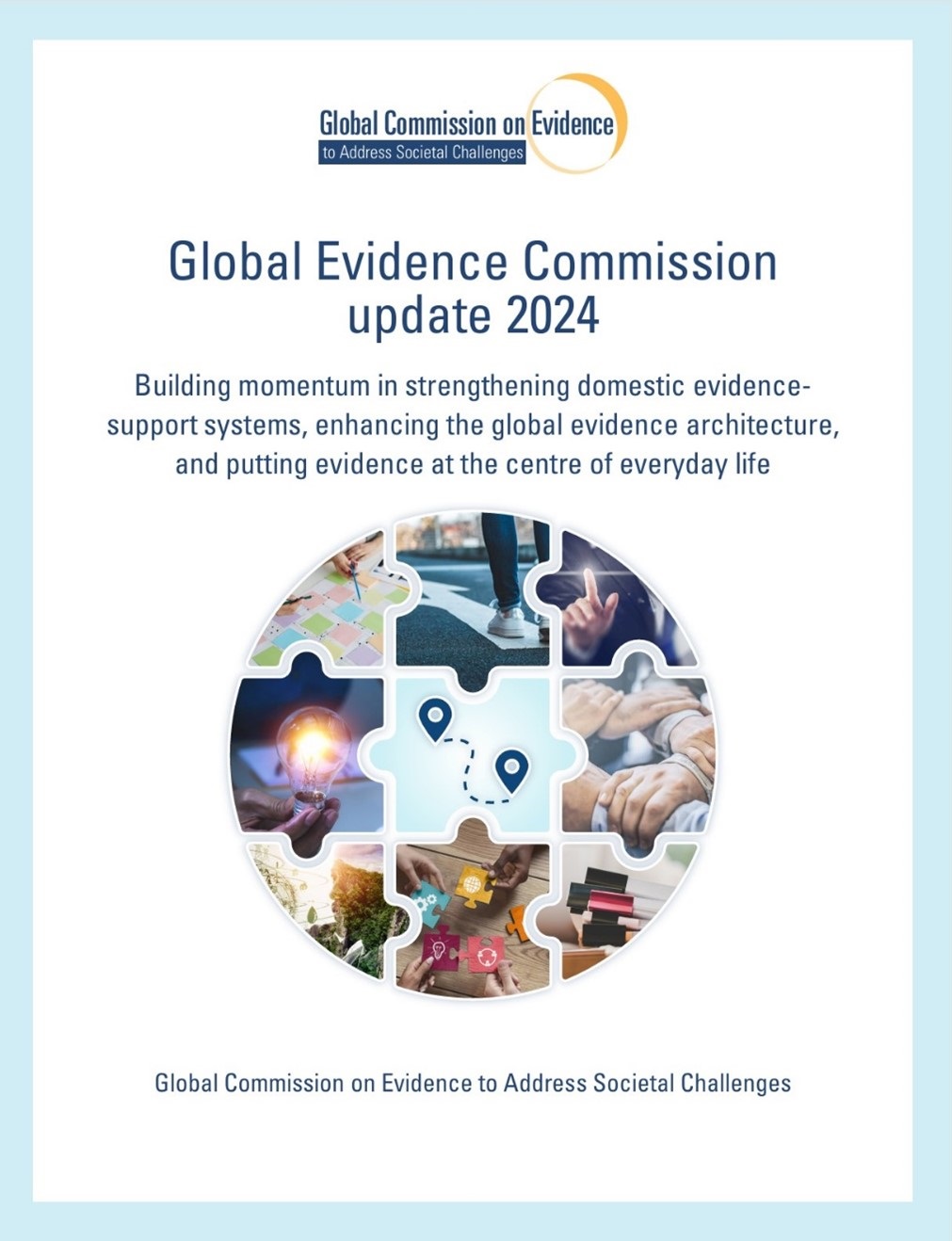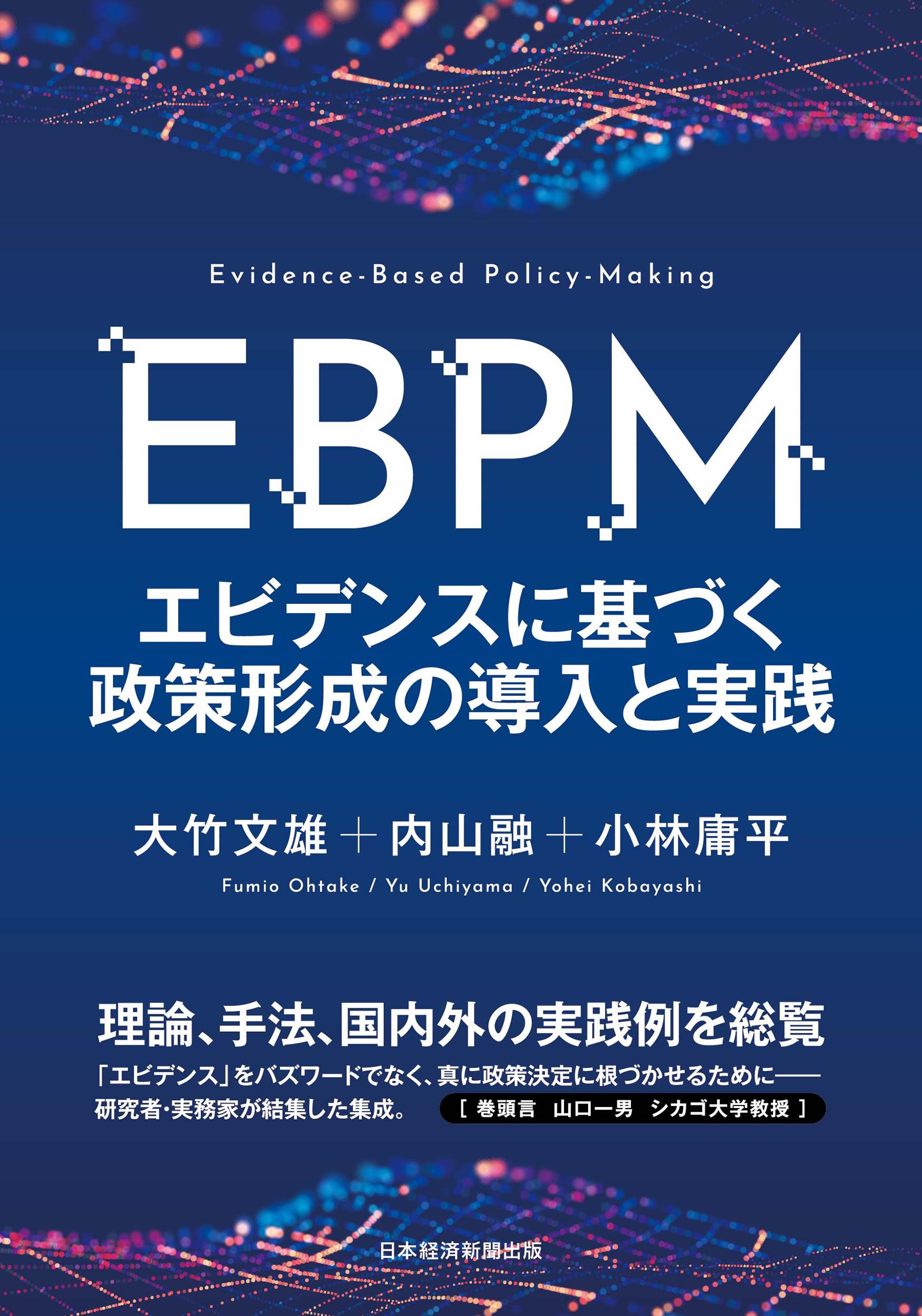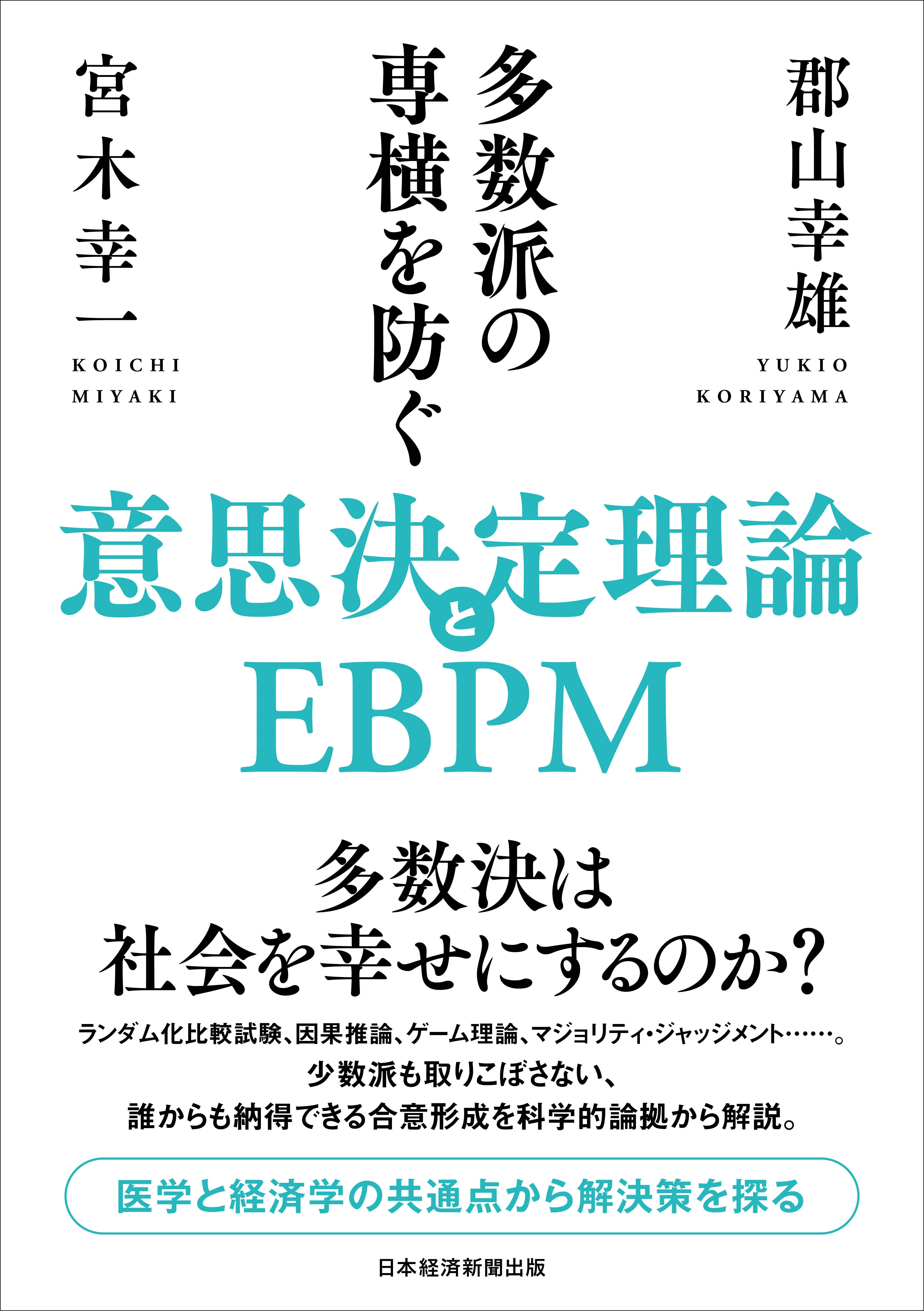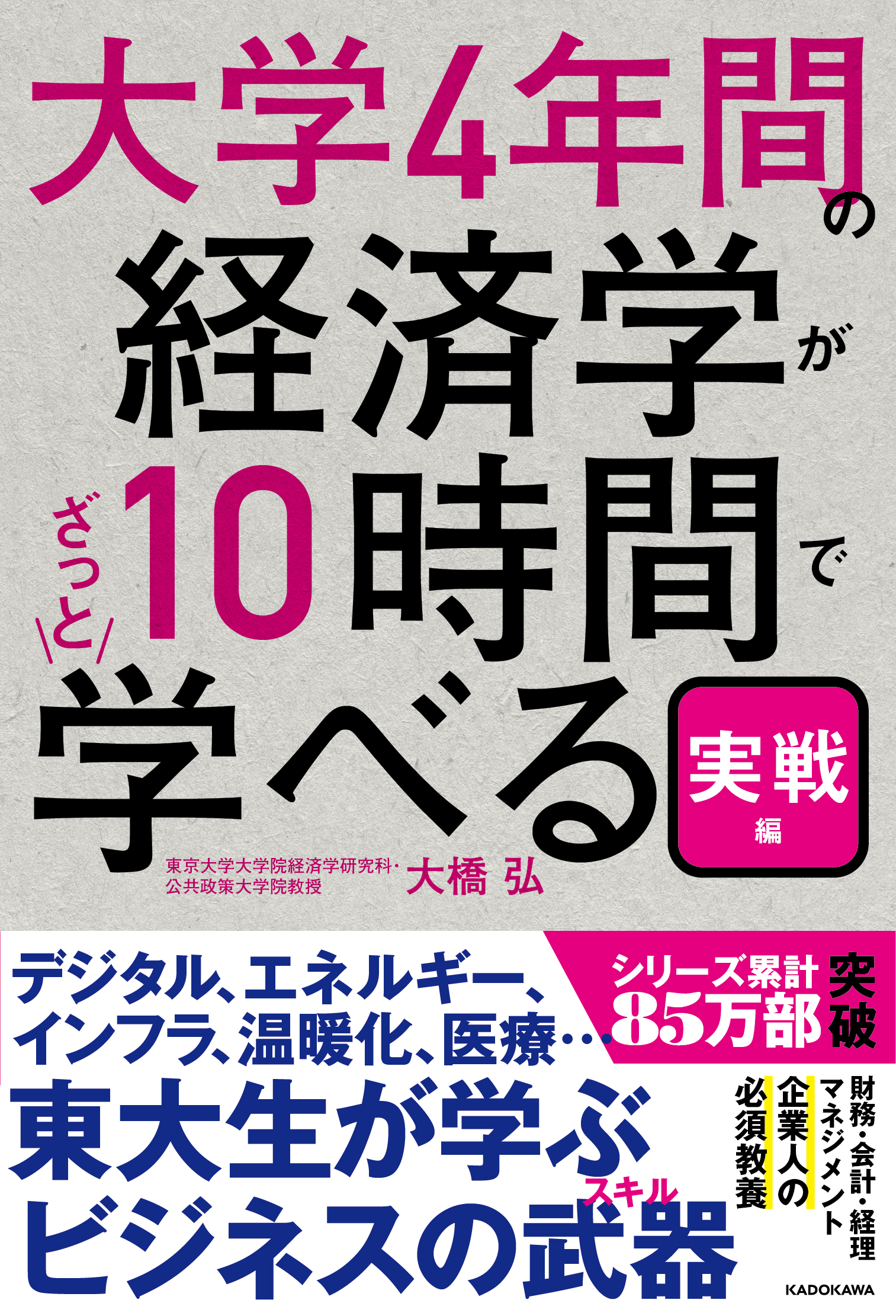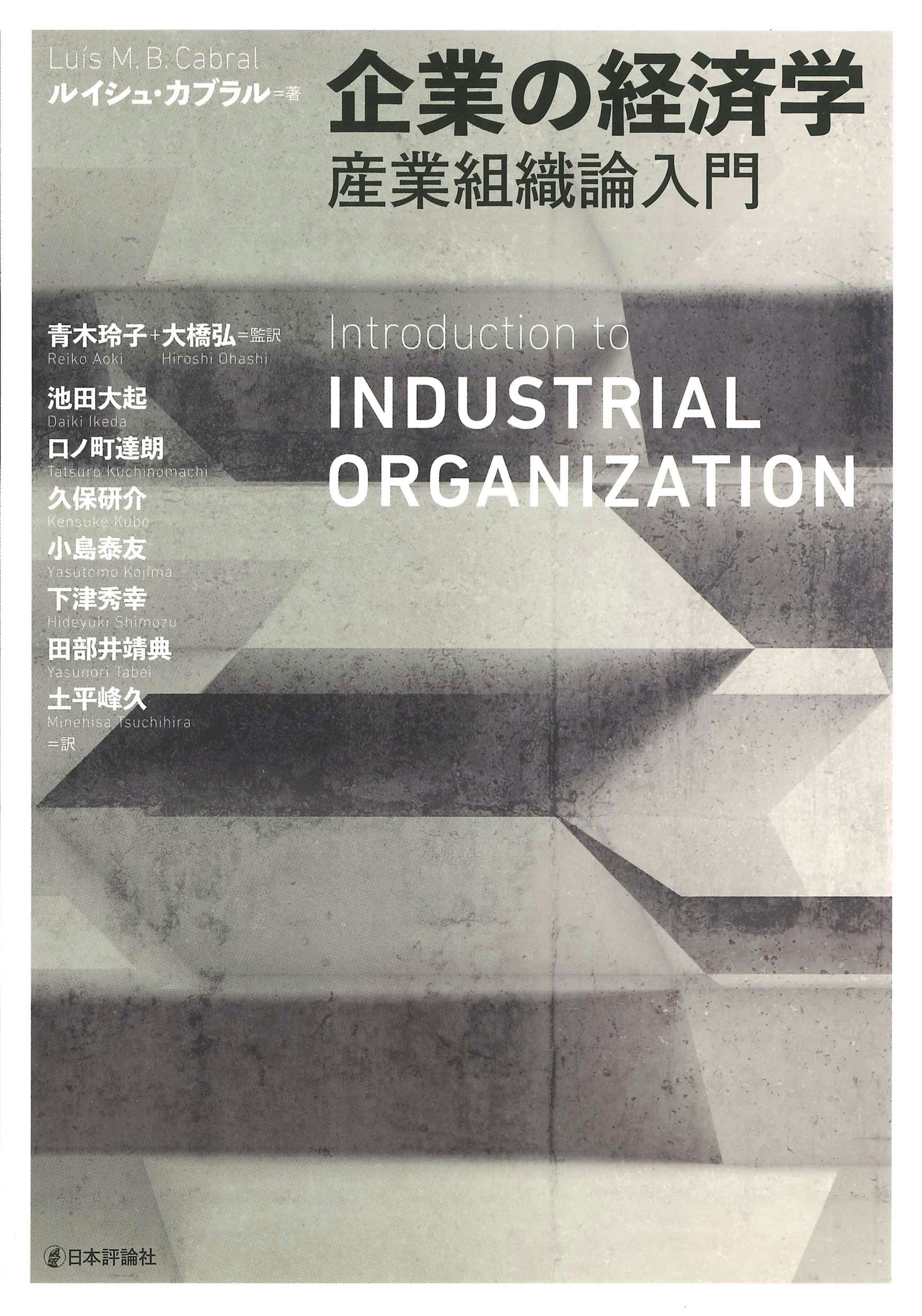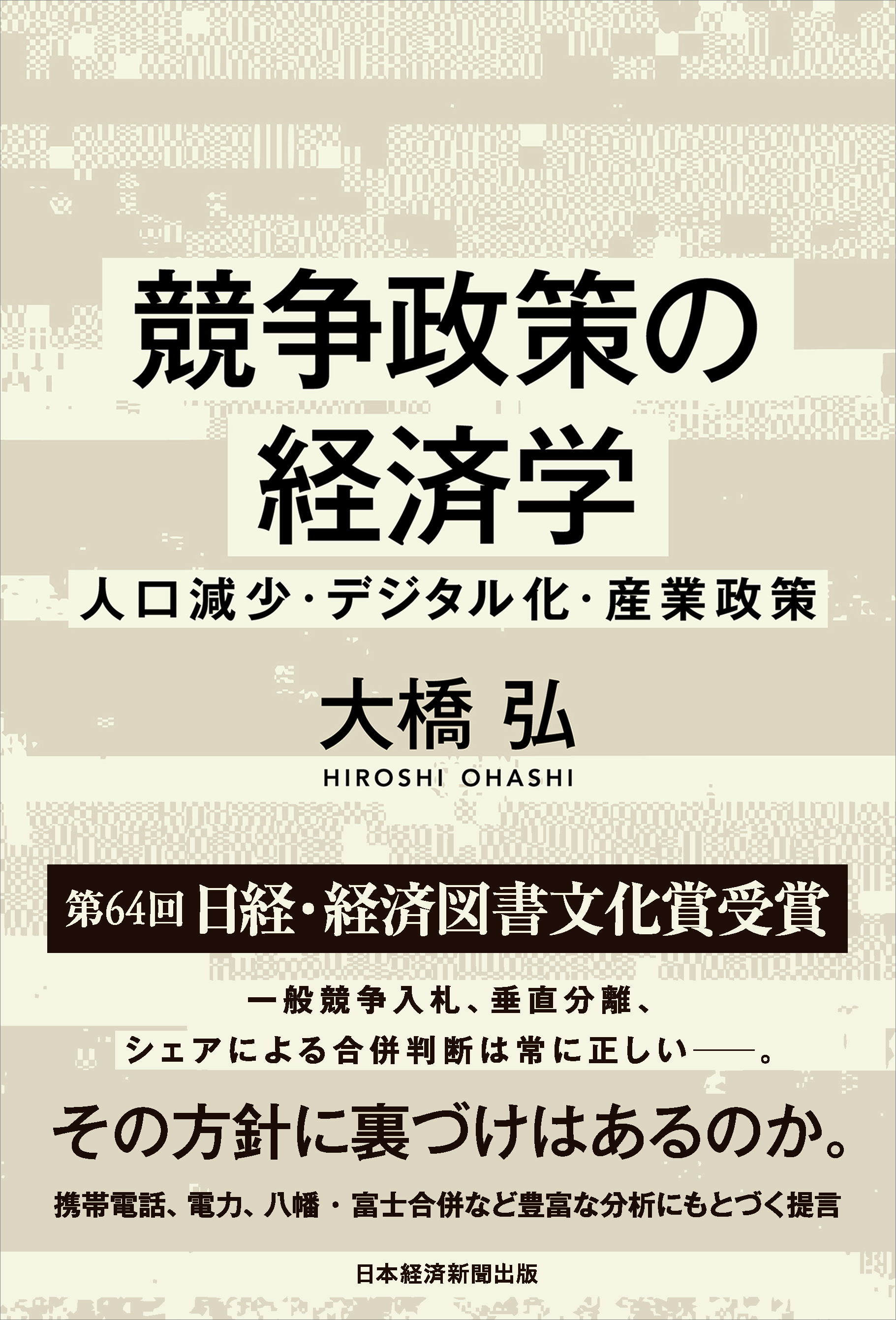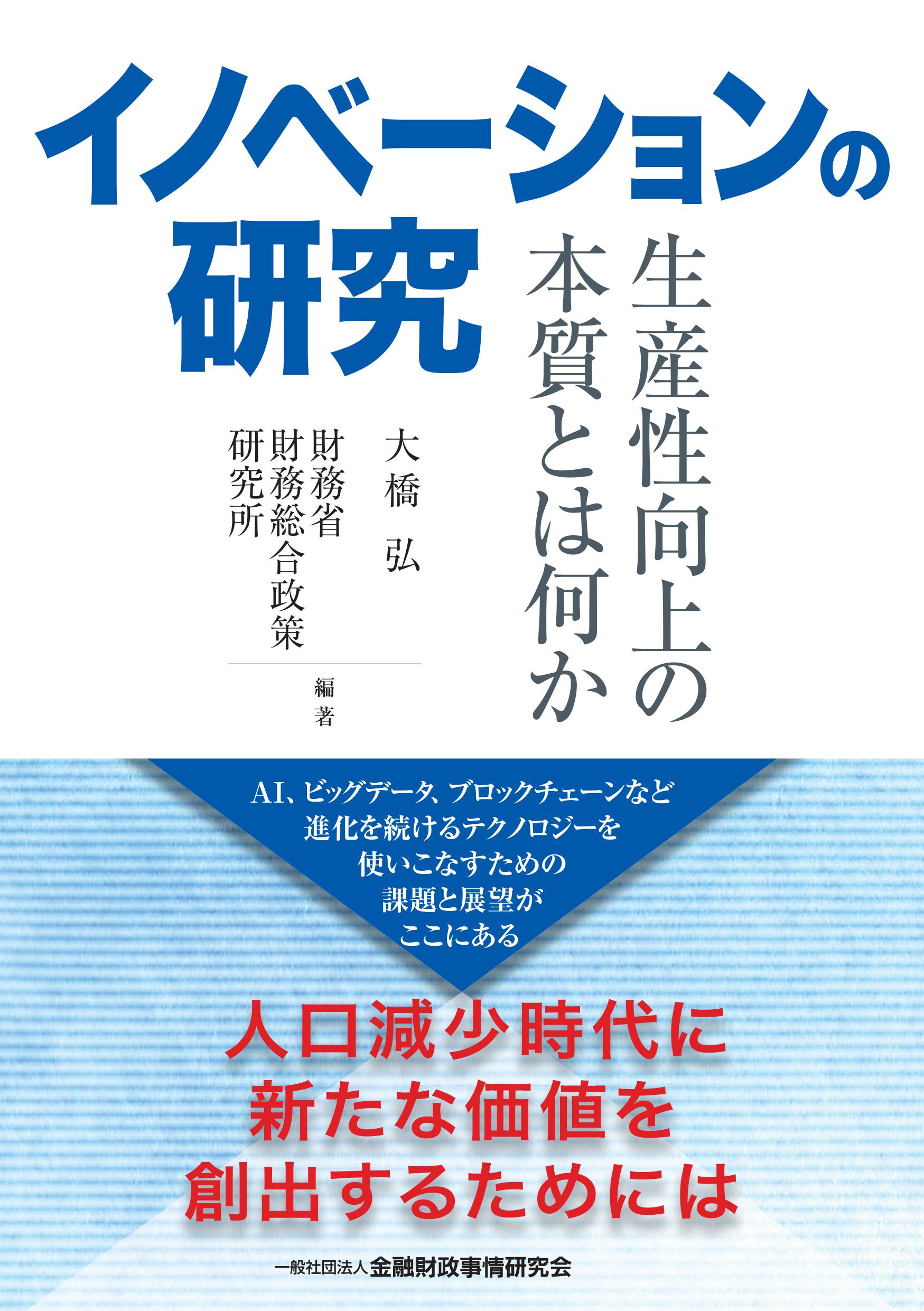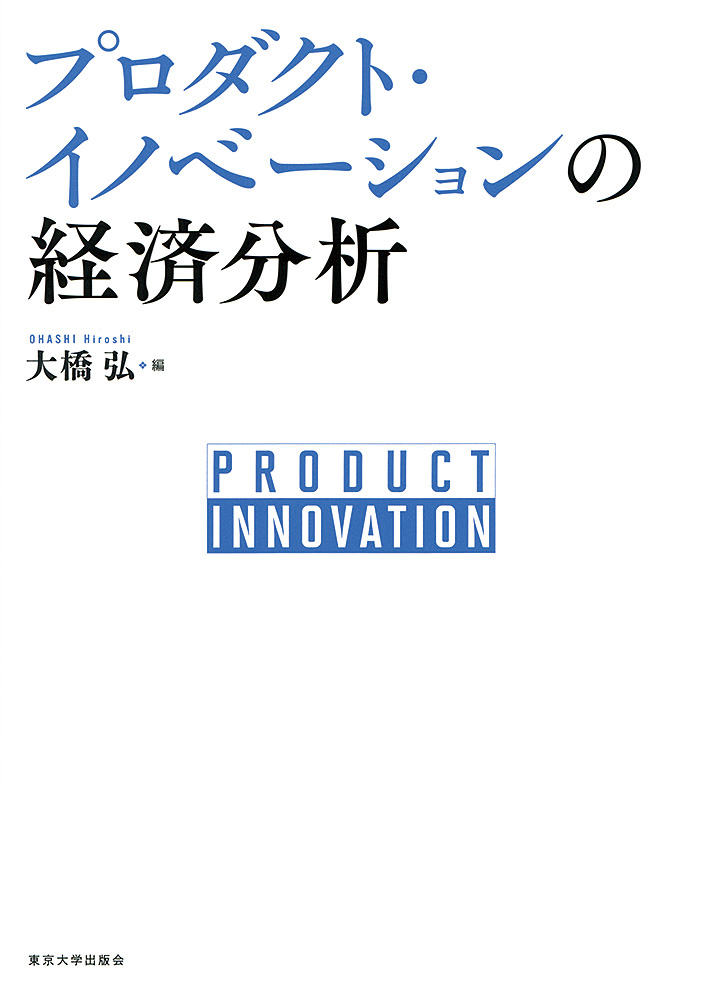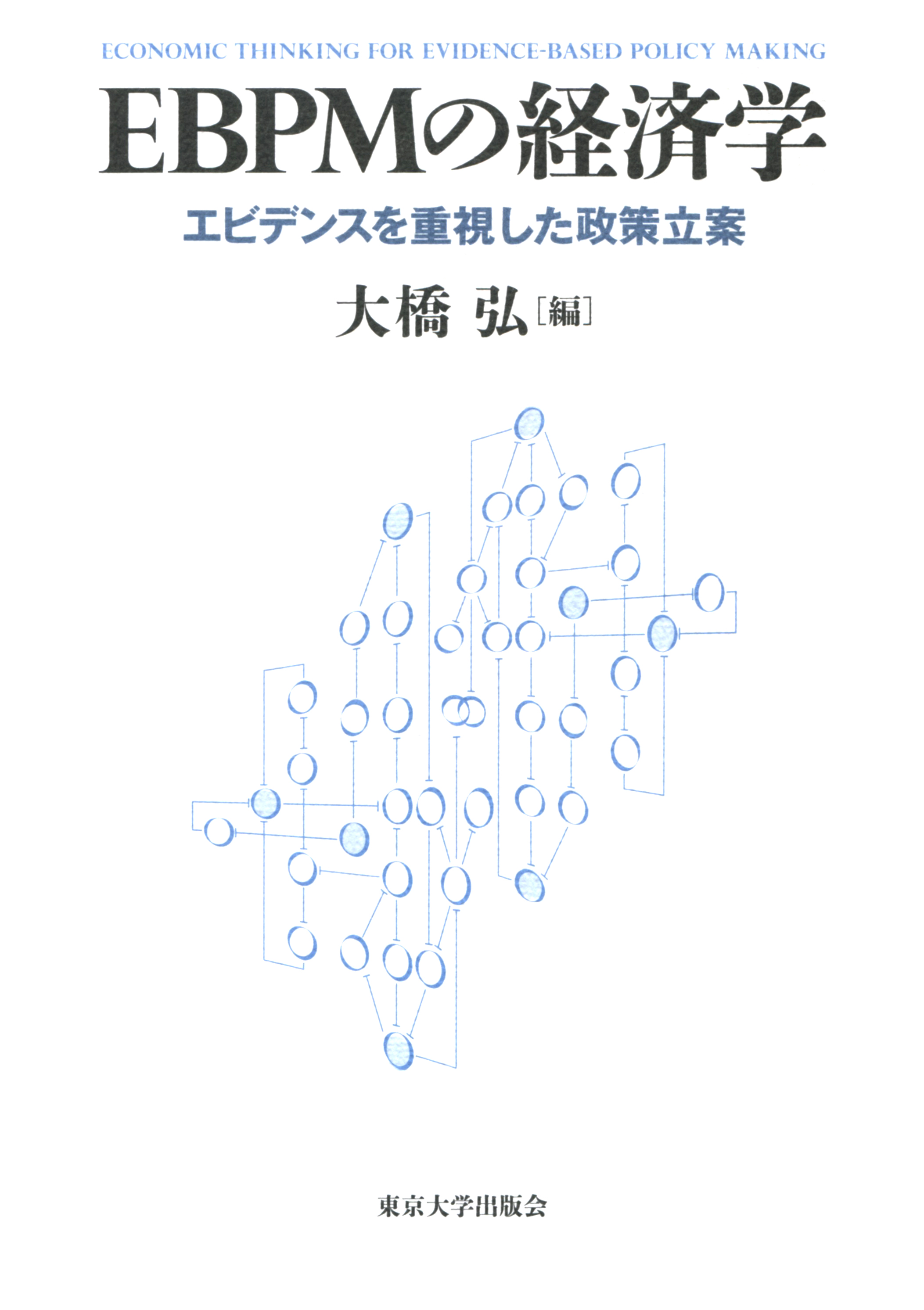
Title
EBPM no Keizai-gaku (Economic Thinking for Evidence-based Policymaking - Evidence-Based Policymaking)
Size
368 pages, A5 format
Language
Japanese
Released
February 27, 2020
ISBN
978-4-13-040291-0
Published by
University of Tokyo Press
Book Info
See Book Availability at Library
Japanese Page
This book is the collaborative outcome of core policymakers within Japanese ministries, and academic researchers active in respective policy fields.
Our everyday lives are closely influenced by various types of government policies. There are numerous examples of how we live according to public policies. For example, laws and ordinances stipulate that expiration dates be precisely displayed on food items. Transportation is another example; automobiles and public transportations alike, standards are stipulated to maintain safety. Amid novel coronavirus (COVID-19) pandemic, which shows no signs of ending, the government has implemented policies that help private enterprises overcome difficulties. These include subsidies for small and medium-sized enterprises, and the “Go To” campaigns intended to stimulate the tourism and food service industries, etc.
Changes in procedures are now being attempted in government policymaking, which is intimately connected with our everyday lives, as described above. Thus far, the government has been described as tending to draft measures with an “episode-based” approach, in which the ideas and intentions of outspoken stakeholders are reflected in policies. As utilization of statistics have progressed, and as statistics have actively been incorporated in evidence-based policymaking (EBPM) abroad, a momentum for the transition from an “episode-based” to an “evidence-based” approach has increased in Japan. This approach increases the need to be more transparent and to be accountable for policymaking. Further, it increases opportunities in political initiatives for creating policies that can be thoroughly explained to the public.
Of course, if policies are exclusively drafted based on evidence, it does seem that AI (artificial intelligence) will eventually be able to conduct policymaking. As things currently stand, however, this is still not the case. Evidence, through and through, consists solely of past records. Excessive reliance on such past experiences could result in a slip into “PBEM (policy-based evidence making),” in which, instead, attempts are made to produce evidence that is convenient for policymaking. As uncertainty toward the future is growing, balance appears increasingly necessary as future-oriented policymaking is carried out while previously acquired knowledge is also put to maximum use.
This book includes discussions regarding the form that EBPM should take, as seen from the viewpoints of economists active in six core policy fields, including labor, education, and social capital. Statements concerning the necessary environmental maintenance for EBPM efforts, etc., from on-location, practical viewpoints, are also provided by persons responsible for core policymaking who are active in corresponding policy fields. Remarks and a final section were then assembled from these materials. Issues relating to advancing EBPM can, of course, be said to differ according to each policy field, as can methods and overall approach. This work highlights various aspects, such as the gap between the necessary evidence for policymaking and assessment through hypothesis-testing required in policy settings, as well as the evidence that can actually be gathered. Additionally, two individuals in positions of responsibility concerning policy act as anonymous judges of a sort in this book, striving to adopt a comprehensive approach in a search for overall consistency, working from a policymaking viewpoint.
With those responsible for policy and academic institutes joining forces, we will certainly witness deeper and more advanced EBPM moving forward. Inwardly, I take pride in the notion that this book might be assessed as a pioneering effort.
(Written by OHASHI Hiroshi, Dean, Graduate School of Public Policy / 2021)



 Find a book
Find a book


